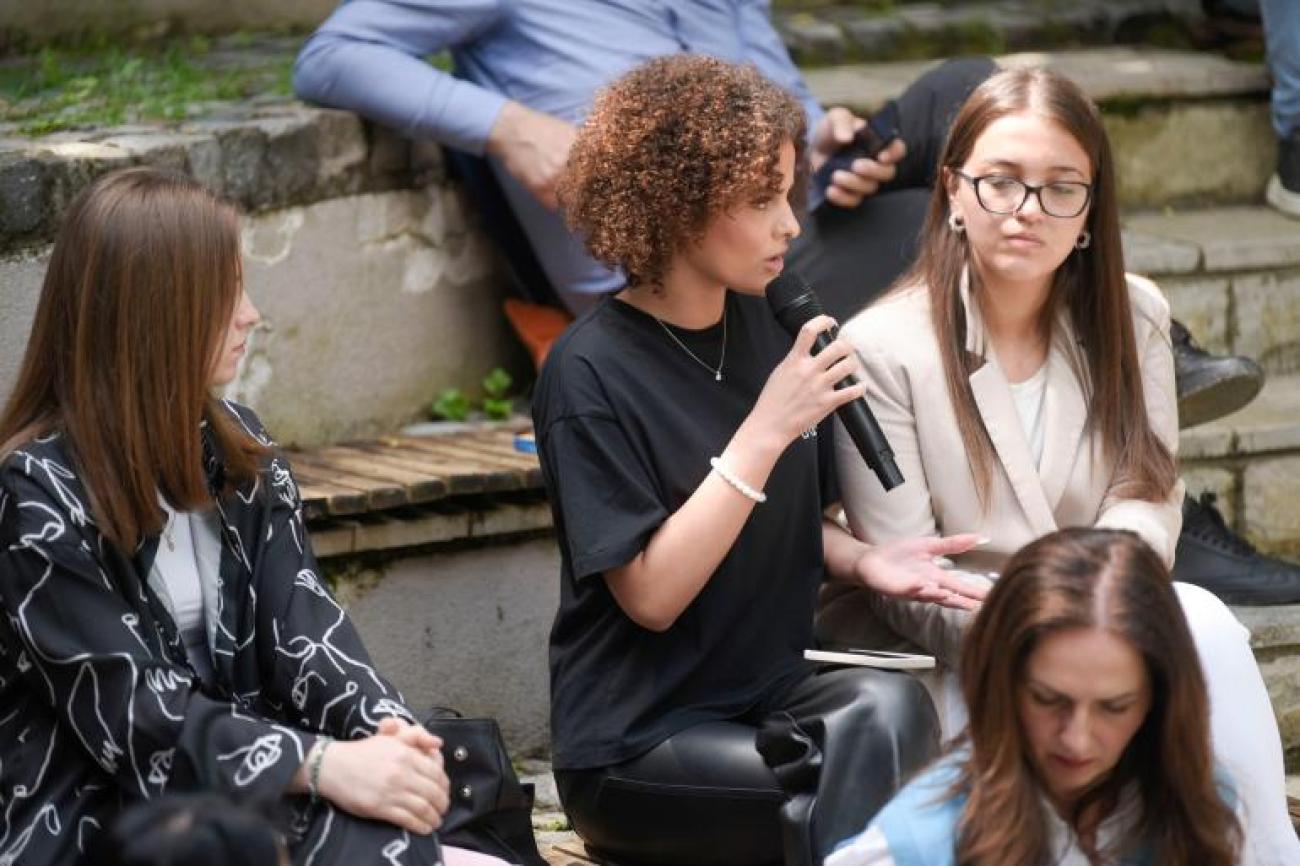Empowering Young People to Take Action for Clean Air

UNICEF and the Swedish Embassy in Kosovo empower young people to take action for clean air.
UNICEF, in collaboration with the Swedish Embassy in Kosovo, marked World Environment Day by bringing together young people and decision-makers to discuss the impact of air pollution in Kosovo. The event aimed to support the engagement of young people in advocating for a cleaner and healthier environment, while encouraging meaningful dialogue on a sustainable future for Kosovo.
The event provided an empowering platform for young individuals to share their personal experiences related to air pollution and other environmental issues. Guests included the Swedish Ambassador to Kosovo, H.E. Jonas Westerlund, Minister of Education, Science, Technology and Innovation Ms. Arberie Nagavci, the Head of UNICEF in Kosovo, Ms. Nona Zicherman, Chair of the Parliament Committee on Environment Ms. Fitore Pacolli, Deputy Minister of Environment, Spatial Planning and Infrastructure Mr. Avni Zogiani, and Deputy Minister of Economy Mr. Getoar Mjeku.
Sweden currently holds the presidency of the Council of the European Union, and one of its priorities is supporting green and energy transitions in the Western Balkans. “Sweden wishes to use its presidency to ensure children and young people are able to meaningfully participate and contribute to key decision-making processes. During World Environment Day in Kosovo, Sweden wishes to underline every child’s right to clean air. The voices of children should be heard in policy debates that relate to their rights” – said the Ambassador of Sweden to Kosovo, Mr. Jonas Westerlund.
During the event young people exchanged ideas and proposed solutions to combat air pollution in Kosovo directly to decision-makers. 18-year-old Demjana highlighted the importance of youth perspectives and urged authorities to consult them throughout the implementation of the Energy Strategy. She also shared her own experience with the power of youth environmental activism, saying: “jointly with my friends, we have advocated at the local level with municipal officials, and we managed to increase the number of bike lanes in Ferizaj”.
Another young advocate, 17-year-old Verona from Obiliq, shared her concern regarding air quality in her community, due to proximity with the coal-fired power plant. She asked the decision makers to accelerate their plans to install filters at this plant in order to reduce pollution.
Air quality in Kosovo remains of concern to parents, children and youth. Reports show that particulate matter frequently exceeds WHO recommended limits, which puts children and other vulnerable groups at an increased risk of lasting damage to their health and development.
“The Convention on the Rights of the Child acknowledges the right to a clean, healthy, and sustainable environment. Air pollution and other environmental challenges pose significant risks to children’s health and well-being. We must work actively to protect them, and to support young advocates here in Kosovo and globally as they push forward in the fight for climate justice” – said Nona Zicherman, Head of UNICEF in Kosovo.
In partnership with the Swedish Environment Protection Agency UNICEF is implementing a regional project in the Western Balkans which supports governments and local authorities to strengthen their capacities for air quality data and governance while amplifying young people's voices to improve air quality policy and influence social norms.


